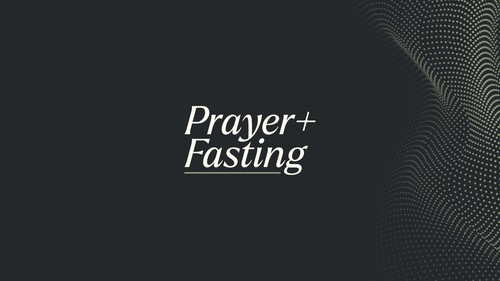

How does fasting work?
PHYSICALLY
Throughout your fast, you may feel somewhat weaker than normal. During the first few days, you may feel tired and irritable. You might not be able to maintain a full workout routine or do strenuous work. Headaches are common, often due to caffeine and sugar withdrawal. You may even find a white film on your tongue accompanied by some stinky breath because fasting “detoxes” your body. After a few days, you will feel increased mental clarity, energy and focus.
Throughout your fast, you may feel somewhat weaker than normal. During the first few days, you may feel tired and irritable. You might not be able to maintain a full workout routine or do strenuous work. Headaches are common, often due to caffeine and sugar withdrawal. You may even find a white film on your tongue accompanied by some stinky breath because fasting “detoxes” your body. After a few days, you will feel increased mental clarity, energy and focus.
SPIRITUALLY
Fasting is not just denying yourself food. It is exchanging the needs of the physical body for those of the spiritual. Dedicated times of prayer and reading God’s Word will be essential if you want to benefit spiritually. If you waste your energy while fasting on busyness and neglect time with God, you will starve both physically and spiritually. Just putting yourself on a glorified hunger strike will result in feeling discouraged and frustrated. However, simply exchanging your meal time to meditate on God’s Word, worship and pray will help you become so energized and blessed spiritually, it will overflow into your physical life.
Fasting is not just denying yourself food. It is exchanging the needs of the physical body for those of the spiritual. Dedicated times of prayer and reading God’s Word will be essential if you want to benefit spiritually. If you waste your energy while fasting on busyness and neglect time with God, you will starve both physically and spiritually. Just putting yourself on a glorified hunger strike will result in feeling discouraged and frustrated. However, simply exchanging your meal time to meditate on God’s Word, worship and pray will help you become so energized and blessed spiritually, it will overflow into your physical life.
KINDS OF FASTS | THE COMPLETE FAST
Drink only liquids, mainly water, with juices and other select liquids as an option for a predetermined length of time. If you have any health issues that might be affected by a full fast, consult your physician prior to fasting.
KINDS OF FASTS | THE Partial FAST
This fast involves abstaining from eating any food during specific times of the day, such as nothing until 5pm. You might also choose to fast just one meal each day. This a place to start if you’ve never fasted before.
BEFORE YOU BEGIN
HERE ARE ANSWERS TO SOME FREQUENTLY ASKED QUESTIONS TO HELP YOU PREPARE.
What kind of fast is right for me?
We recommend complete fasting (liquid only fasting), especially if you are going to fast for an extended period of time. Water only fasting is only recommended if you are in a position to limit your physical and work activities significantly. Remember, Jesus went to the desert for 40 days. He knew he would be “hangry.” If you plan on continuing with most of your regular routine, work, school etc, then there are simple ways you can be successful.
What do I need to do before?
If you plan on fasting for several days, you will find it helpful to begin by eating smaller meals before you abstain altogether. Cutting down on your meals a few days before you begin the fast will signal your mind, stomach, and appetite that less food is acceptable. If you are big on caffeine and sugar products, begin cutting those back. It may help to ease your initial hunger or discomfort at the early stages of your fast. Plan for how you plan on spending time with God. Will you do a new Bible reading plan? Will you get strategic with your prayer time? Pick some scriptures to declare over areas you need breakthrough in.
What can I expect?
Hunger pangs are usually the greatest during the first three days of the fast. Your body is adjusting from using the food in your digestive tract (which remains about three days) to consuming stored fats. Other side effects are coldness, bad breath and heightened body odor, changes in elimination (constipation or diarrhea), light-headedness, changes in sleeping and dreaming patterns, aches and pains.
A white-coated tongue at the beginning of a fast may be a part of the body's pattern of throwing off toxins. Also, expect to go the the bathroom often (you will be drinking lots of water!). Many of these symptoms subside after 5-7 days. Continuing minor aches usually means your body is using stored fats for fuel.
How should I respond to the effects?
Here are some physical side effects you may feel and how you can help alleviate the symptoms.
Headaches or stomachaches may be a result of salt, sugar, or caffeine withdrawal.
Lower back pain may indicate that you are dehydrating. Drink more fluids.
Dizziness may be caused by a sudden change in position, such as rising suddenly from a chair. Stop for a second or two, then recover. Move slowly.
Discouragement is normal while fasting. We often don’t realize how emotionally dependent we are on food. In the morning you may feel like you are on top of the world, but by evening, you may be down and tempted to raid the refrigerator and count how many more days you have left.
To counteract these feelings, go outside for fresh air or walk for a mile or two. Remember to invite God to speak to you along the way.
Headaches or stomachaches may be a result of salt, sugar, or caffeine withdrawal.
Lower back pain may indicate that you are dehydrating. Drink more fluids.
Dizziness may be caused by a sudden change in position, such as rising suddenly from a chair. Stop for a second or two, then recover. Move slowly.
Discouragement is normal while fasting. We often don’t realize how emotionally dependent we are on food. In the morning you may feel like you are on top of the world, but by evening, you may be down and tempted to raid the refrigerator and count how many more days you have left.
To counteract these feelings, go outside for fresh air or walk for a mile or two. Remember to invite God to speak to you along the way.
Can I participate if I'm pregnant or nursing?
If you're pregnant or nursing, your body needs consistent nourishment—not just for you, but for the life you're carrying or sustaining. Fasting from food isn’t wise in this season, and you shouldn’t feel any guilt about that. But you can still participate by intentionally giving up things that often distract you from Jesus, like social media, screen time, or TV. While those things aren't a biblical fast, choosing to yield your attention and make space for prayer and time in God’s Word can still make this a powerful and meaningful season of spiritual growth. God sees your heart and honors your pursuit.
How do I need to start and end?
Breaking your fast is a critical part of fasting. While your body is in the resting mode, your stomach shrinks and your intestines become idle, so solid food must be re-introduced slowly to digestive distress. If you end your fast gradually, the beneficial physical and spiritual effects will linger for days. Rushing back into normal foods may cause you to lose your deep sense of peace and experience physical problems such as diarrhea, fainting, or sickness.
Most experts agree that breaking a fast with vegetables, either steamed or raw, is best. Avoid large amounts of meat, starches and dairy. Your stomach is smaller now, so eat lightly. Stop before you feel full. Be mindful as you return to exercise routines. It may take a few days for your body to re-adjust to its usual regimen.
TIPS FOR FASTING
Not many of us have the ability to step away from our lives for 40 days like Jesus and many prophets in Scripture did.
However, with the right balance, you can truly enjoy the discipline of fasting while continuing your scheduled essentials like work and school.
Remember, fasting is a discipline. Much like working out, it may be difficult and not produce results right away. Over time you will learn to deny your flesh and focus on the spirit. This strength will benefit your spiritual life for years to come.
However, with the right balance, you can truly enjoy the discipline of fasting while continuing your scheduled essentials like work and school.
Remember, fasting is a discipline. Much like working out, it may be difficult and not produce results right away. Over time you will learn to deny your flesh and focus on the spirit. This strength will benefit your spiritual life for years to come.
THE RIGHT AMOUNT OF WATER
Fasting will naturally detox your body, and water will provide you with the fluid to get the toxins out.
Increased water consumption is key to you having a successful experience while fasting.
A minimum of 100 ounces of water daily is recommended.
Increased water consumption is key to you having a successful experience while fasting.
A minimum of 100 ounces of water daily is recommended.
THE RIGHT LIQUIDS
While your primary source of fluids should come from water, a few other key beverages might make all the difference in your fasting experience.
100% fruit juices, clear broths, electrolyte enhanced beverages and even the occasional cup of black coffee or tea can help you keep going.
Use sparingly and only when accompanied with large amounts of water. Too much sugar or caffeine while fasting can result in feeling shaky or nauseous.
100% fruit juices, clear broths, electrolyte enhanced beverages and even the occasional cup of black coffee or tea can help you keep going.
Use sparingly and only when accompanied with large amounts of water. Too much sugar or caffeine while fasting can result in feeling shaky or nauseous.
THE RIGHT PEOPLE
When fasting, especially for the first time, it is important to have the right people to encourage your journey. Many are reluctant to tell others they are fasting to avoid the sin of the Pharisees: fasting just to gain recognition for themselves. But this interpretation of Jesus’ teaching can rob us of the encouragement we need to practice this discipline. Having the support of our circle can help us press on when we are tempted to give up. Some people will notice you are not eating, but they usually don’t consider your skipped meal much of a concern. A quick and simple answer is “I have other plans for lunch today.” And just know, you will be surrounded by more opportunities for free food during fasting than at any other time in your life.
